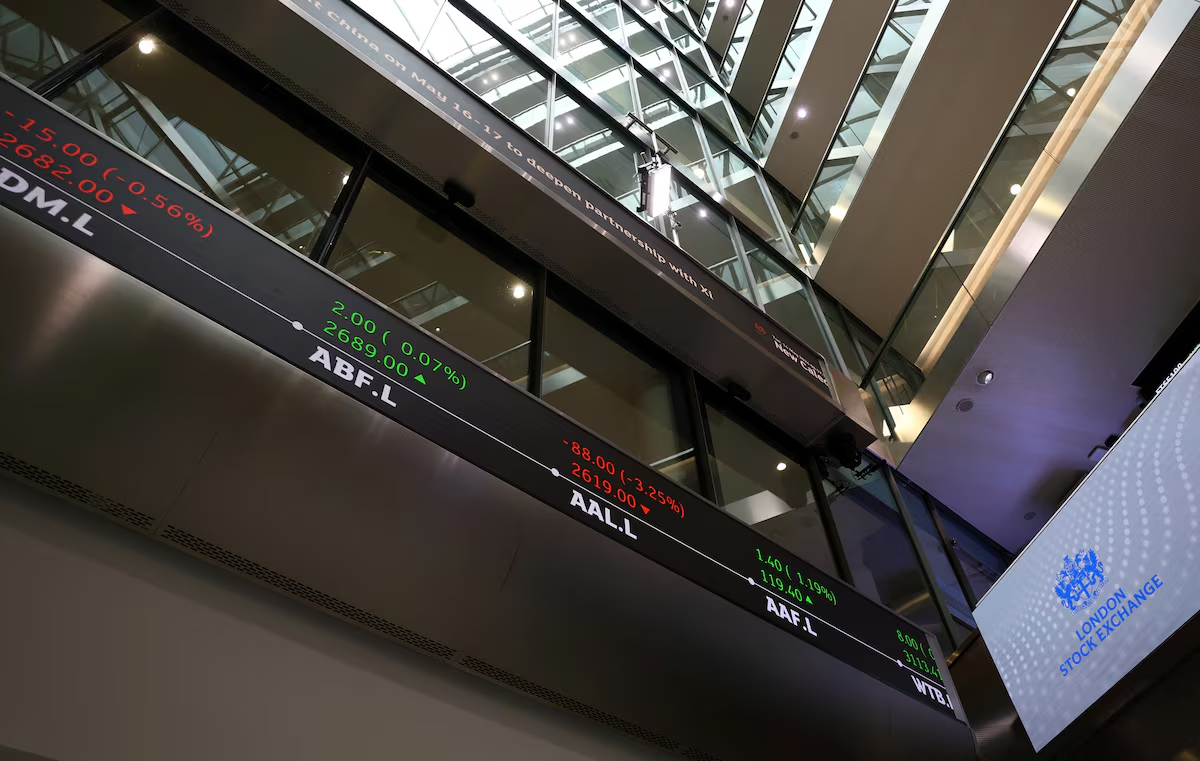News
UK Stocks Poised for Weekly Decline as Corporate Earnings Drag on Market Sentiment

UK equities were on course to post a weekly decline on Friday, weighed down by disappointing corporate earnings and broader caution across global markets. Investors remained focused on company results and economic data, which together painted a mixed picture of growth and profitability heading into the year’s final quarter.
The benchmark FTSE 100 traded slightly lower in early London dealings, extending losses from the previous session as several blue-chip firms reported weaker-than-expected earnings. Mid-cap stocks on the FTSE 250 also slipped, reflecting concerns about slowing domestic demand and the impact of tighter financing conditions on UK businesses.
Market analysts said the downward momentum was primarily driven by earnings misses in key sectors, including energy, retail, and financial services. “The UK market is experiencing a modest correction as earnings results come in below forecasts for some large companies,” said one London-based strategist. “While inflation is easing, margins are still under pressure, and investors are increasingly cautious about 2026 growth prospects.”
Energy stocks struggled to find direction despite a slight rebound in global oil prices. Major producers such as BP and Shell traded lower after reporting softer quarterly profits, largely due to weaker refining margins and subdued energy demand in Europe. Meanwhile, mining shares were mixed as base metal prices fluctuated amid uncertain demand from China.
Consumer and retail stocks also faced headwinds. Sentiment in the sector was dampened by lackluster trading updates from large UK retailers, which highlighted slow sales growth and persistent cost pressures despite easing inflation. Analysts said the upcoming holiday season could provide a short-term lift, but underlying consumer confidence remains fragile.
Financial stocks were among the biggest decliners, with several banks and insurers retreating after mixed earnings reports. Concerns over higher capital requirements and sluggish loan growth continued to weigh on the sector. Some analysts noted that while interest rate stability has improved earnings predictability, the benefits are being offset by softer credit demand and competition for deposits.
On the macroeconomic front, investors are awaiting next week’s data releases on GDP and inflation, which could offer more clarity on the Bank of England’s monetary policy trajectory. Recent comments from central bank officials suggested that interest rates may remain steady for the foreseeable future, though policymakers are signaling patience before considering cuts.
Globally, investor sentiment remained subdued following a broad selloff in technology shares across US and Asian markets earlier in the week. European equities mirrored that cautious tone, with traders preferring to stay defensive ahead of key economic data and corporate guidance updates.
Despite the week’s weakness, some strategists remain optimistic that UK equities could stabilize in the near term as valuations appear relatively attractive compared to international peers. “The FTSE continues to offer strong dividend yields and good value, but it needs stronger earnings momentum to regain investor confidence,” said an analyst at Capital Economics.
As trading heads into the weekend, the FTSE 100 is poised to close lower for the week, snapping a brief rally seen in late October. Market participants say attention will now shift toward corporate outlooks and macro indicators to gauge whether the recent dip represents a short-term pullback or the start of a broader correction.






















